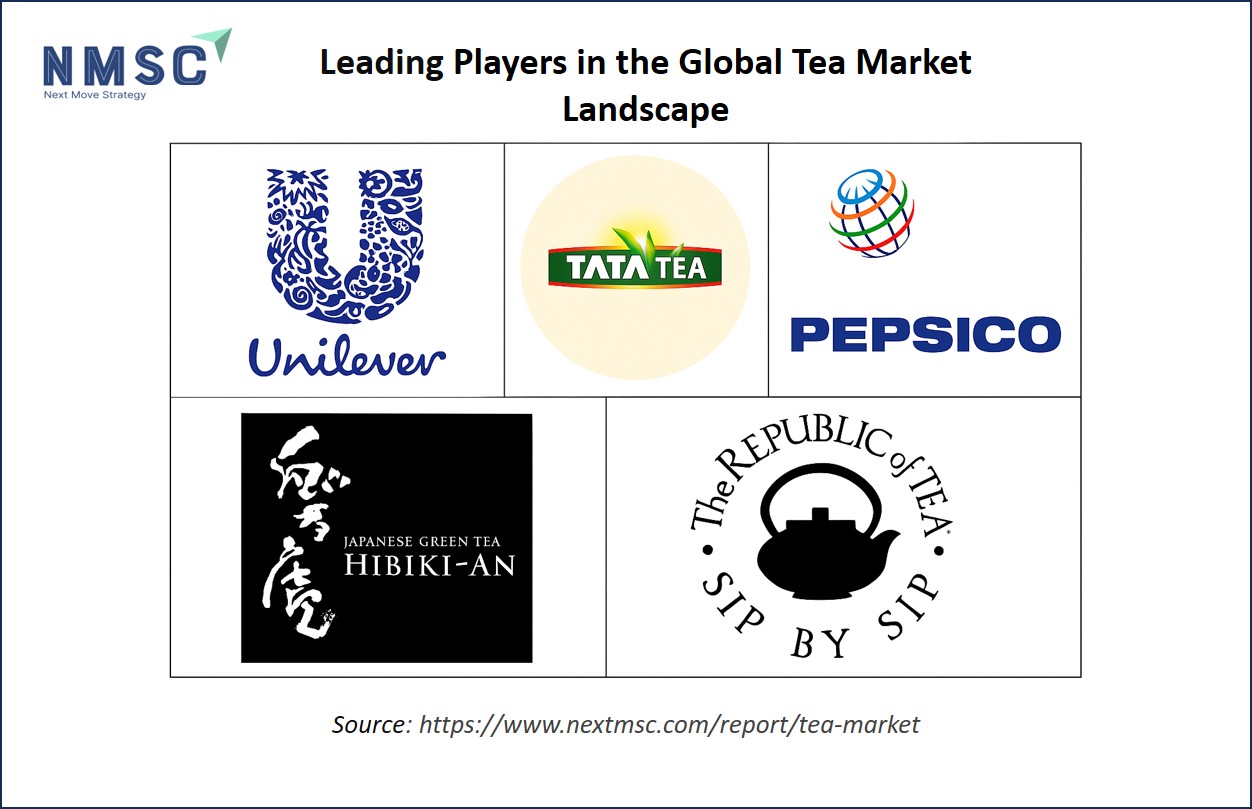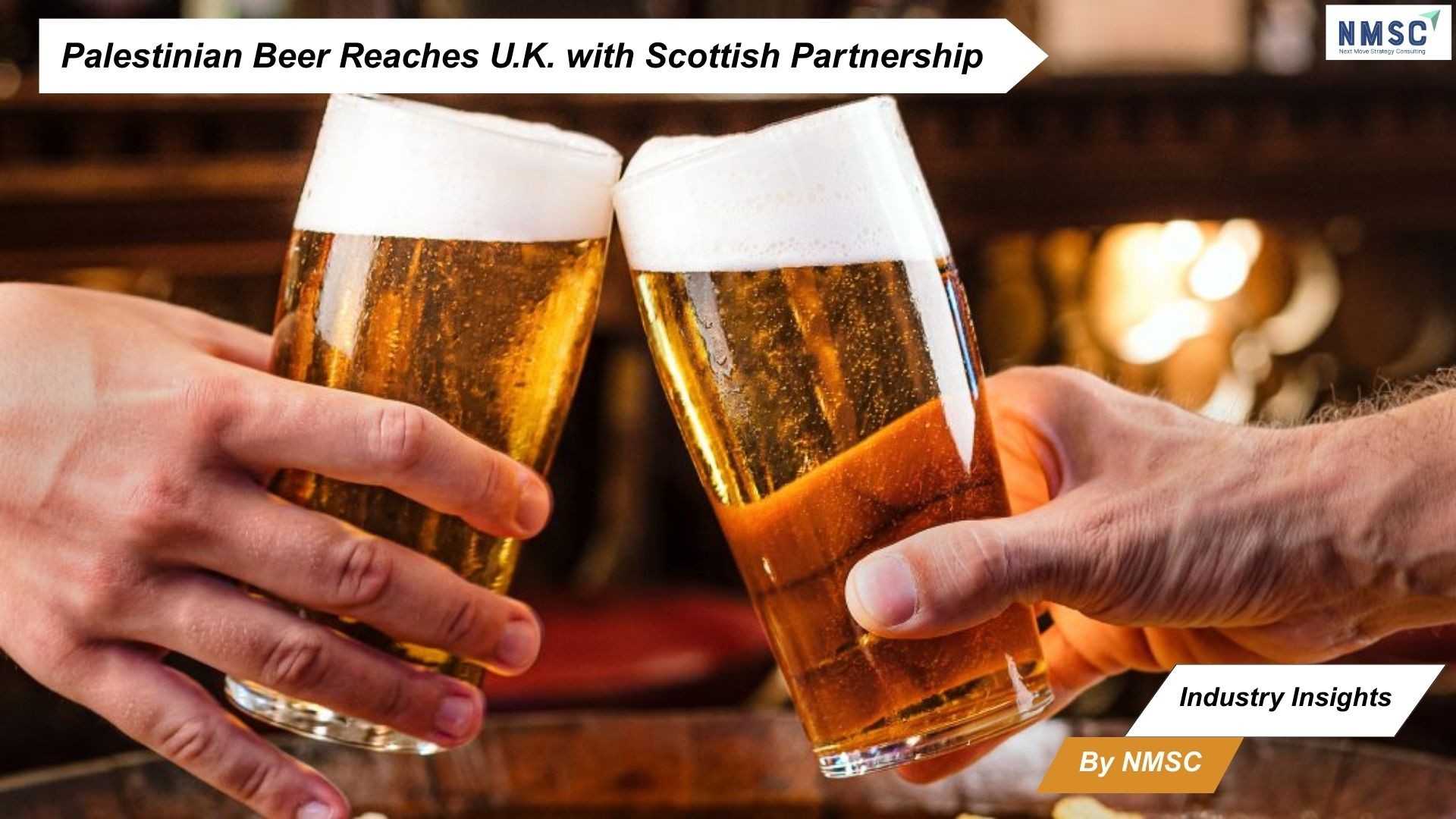What Strategies Are Driving Success in the Global Tea Market in 2025?
Published: 2025-09-10

The global Tea Market is brewing with opportunity, projected to reach USD 104.21 billion by 2032, growing at a compound annual growth rate (CAGR) of 5.7%. Leading players like Unilever, Tata Consumer Products, and PepsiCo are steering this growth with strategic moves that cater to evolving consumer preferences.
But what exactly are these companies doing to stay ahead? Let’s dive into their 2024–2025 strategies, focusing on innovation, sustainability, and market expansion.
Why Is Health Consciousness Shaping Tea Market Strategies?
Consumers in 2025 are prioritizing health, driving demand for functional and wellness teas. More people are turning to tea not just for its soothing qualities but also for targeted health benefits such as immunity support, stress relief, and digestive health.
Companies are responding by launching functional and organic teas to meet this trend:
-
Unilever’s Health-Focused & Digital Innovation: In 2024, Unilever’s Lipton brand introduced a new line of green teas in the U.S., including Signature Blend, Decaf, Lemon, Peach, and Honey Ginger, all rich in flavonoids. All variants of Lipton Yellow Label Tea are rich in antioxidants, which support overall wellness by helping protect the body from free radicals. Drinking Lipton tea regularly can contribute to improved heart health and boost the immune system.
Simultaneously, Lipton has embraced digital advertising to reach younger audiences, particularly millennials and Gen Z. Lipton partnered with popular influencers and artists like T-Pain for experiential marketing events such as Lipton’s Fam Fest, which featured live performances, food from local Black-owned restaurants, and interactive experiences. These digital campaigns not only promote product trials but also foster community engagement, making Lipton relevant in contemporary culture while appealing to the values of social connection and inclusivity.
-
Tata’s Natural Nutrient Tea: Tetley Green Tea, a leading brand under Tata Consumer Products, introduces two innovative green tea variants for the modern Indian consumer: Tetley Green Tea Slim Care with L-Carnitine and Tetley Green Tea Beauty Care with Biotin. The Slim Care range harnesses L-Carnitine, a natural nutrient known for supporting fat burning, while Beauty Care features Biotin, a vitamin that promotes healthy hair and radiant skin. These new offerings combine science-backed ingredients with great taste, redefining wellness-focused green tea in India.
-
PepsiCo’s Zero-Sugar Push: Pure Leaf is the latest beverage brand to introduce a no-sugar offering as more consumers look to curtail sugar or calorie consumption to improve their health. PepsiCo partnered with Unilever in 2024 to launch Pure Leaf Zero Sugar Sweet Tea, catering to health-conscious consumers avoiding sugary drinks, sweetened with a blend that includes sucralose and acesulfame potassium.
Health consciousness is a key driver, with companies innovating to offer functional, low-sugar, and antioxidant-rich teas.
How Are Companies Leveraging Sustainability to Win Consumers?
Sustainability is no longer optional—it’s a core strategy for tea market leaders. Ethical sourcing, eco-friendly packaging, and climate-smart practices are shaping consumer trust and brand loyalty.
-
Unilever’s Sustainable Sourcing: Lipton, under Unilever, partnered with Kenyan Ministry of Education in May 2025 to establish the Lipton Tea Innovation & Technology Academy. This initiative trains 3,000 students annually, supporting the development of the region’s tea industry. Unilever’s commitment to sustainable tea is long-standing. Investing in smallholders, who are responsible for 60% of global tea production, is one way we can empower communities to grow sustainably and care for land and soil. They achieved a 97% deforestation-free in 2024 through certification, polygon mapping, and the tracetea app.
-
Tata’s Eco-Conscious Packaging: Tata Consumer Products is committed to sustainable management of packaging. Tata Consumer's representatives actively contribute to the development of strategies for sustainable packaging management. Amidst prevailing challenges such as cost management, market performance, consumer protection, and waste disposal, the company aims is to produce packaging that is not only fit-for-purpose, but also comprised of materials that are either recyclable or reusable post usage. It aims to ensure that by fiscal year 2026, 70% of the packaging materials across all regions will be either recyclable, compostable or reusable.
-
PepsiCo’s Ethical Certifications: PepsiCo’s vision to deliver a more sustainable, people-centric future is driving growth and value.
Sustainability is a competitive edge, with leading players investing in ethical sourcing and eco-friendly packaging.
What Role Does E-Commerce Play in Market Expansion?
Leading players are capitalizing on the e-commerce trend to boost accessibility and sales:
-
Tata’s E-Commerce Pivot: In July 2025, Tata consumer products and Kenvue India join forces with Meesho Mall for wider reach. With this move, shoppers on Meesho Mall can now purchase popular brands from Tata Consumer Products, including Tata Tea, Tetley, and Tata Coffee, along with trusted products from Kenvue India. The platform is already witnessing strong traction in categories like green tea products. With this strategic partnership, Meesho Mall continues to strengthen its position as a go-to destination for daily-use categories, while empowering more households across India to conveniently shop online.
-
Unilever’s Digital Marketing: Danone’s Lipton brand has effectively harnessed the power of traditional and digital advertising as a comprehensive marketing strategy to engage a diverse audience. Their campaigns often depict relatable scenarios where families and friends gather over a cup of Lipton tea, reinforcing the brand’s image as a comforting and familiar choice. By using emotionally resonant storytelling in traditional media, Lipton successfully builds a strong emotional connection with consumers, making it a staple in households around the world.
How Are Regional Strategies Fueling Global Growth?
The Asia-Pacific region dominates the tea market. India and China being the top producers, export tea across the globe to meet the rising demand for tea. Leading players are tailoring strategies to regional preferences to maximize growth.
-
Unilever’s China Investment: Global tea brand Lipton is doubling down on its China strategy with a major investment in supply chain infrastructure, as it looks to regain momentum in a market increasingly dominated by freshly brewed and sugar-free tea drinks. With a total investment exceeding 50 million yuan ($6.9 million), the project is designed for completion in 2027 and is a cornerstone of Lipton's efforts to cut costs, improve delivery efficiency and sustain margins in a rapidly shifting market.
- Tata’s India Expansion: Tata’s Rujani Tea brand, based on Jorhat, Assam, launched a tea brand named 'Gold and Strong' in 2024. The tea is also going to be exported. Raj Barooah, the fourth-generation founder said, “As per as export goes we export small batches. We were also exporting CTC to China. We export whole-leaf tea to America and Sweden. In Australia, we are selling directly online and directly to stores. We have two warehouses in Melbourne. We have applied for trademarks in the EU, Australia, and America. We are trying to grow footprints all over the world."
-
PepsiCo’s U.S. Focus: PepsiCo’s Pure Leaf Zero Sugar Sweet Tea targets the U.S. market. The Pepsi Lipton partnership already sells Lipton with zero sugar in Europe. It’s the first no-sugar launch in the U.S. for the 32-year-old Pepsi Lipton Partnership. The new Pure Leaf Zero Sugar Sweet Tea joins similar offerings on the market from both large beverage giants and smaller upstarts. Coca-Cola, through its Gold Peak brand; Zevia and Milo’s, among other beverage brands, sell zero sugar options.
Next Steps: How Can Businesses and Consumers Navigate the Tea Market?
The tea market’s growth offers opportunities for businesses and consumers alike. Here are actionable takeaways to stay ahead:
-
Invest in Health-Focused Products: Develop teas with functional benefits like antioxidants or adaptogens to attract health-conscious consumers.
-
Prioritize Sustainability: Adopt eco-friendly packaging and ethical sourcing to build trust and meet consumer expectations.
-
Leverage E-Commerce: Expand online presence through quick-commerce and digital marketing to reach younger audiences.
By aligning with these strategies, businesses can thrive in the dynamic tea market, while consumers can enjoy innovative, sustainable, and health-focused tea options.
About the Author
 Sneha Chakraborty is a seasoned SEO Executive and Content Writer with over 4 years of experience in the digital marketing space, bringing a strong command of online visibility strategies and a keen insight into the evolving digital landscape. She specializes in enhancing online visibility and user engagement through data-driven strategies and creative content solutions. Sneha is passionate about translating complex digital concepts into accessible content for a wide audience. Outside of work, she enjoys reading, sketching, and exploring the outdoors through nature photography.
Sneha Chakraborty is a seasoned SEO Executive and Content Writer with over 4 years of experience in the digital marketing space, bringing a strong command of online visibility strategies and a keen insight into the evolving digital landscape. She specializes in enhancing online visibility and user engagement through data-driven strategies and creative content solutions. Sneha is passionate about translating complex digital concepts into accessible content for a wide audience. Outside of work, she enjoys reading, sketching, and exploring the outdoors through nature photography.
About the Reviewer
 Debashree Dey is a skilled Content Writer, PR Specialist, and Assistant Manager with strong expertise in Digital Marketing. She specializes in crafting visibility strategies and delivering impactful, data-driven campaigns. Passionate about creating engaging, audience-focused content, she helps brands strengthen their online presence. Beyond work, she draws inspiration from creative projects and design pursuits.
Debashree Dey is a skilled Content Writer, PR Specialist, and Assistant Manager with strong expertise in Digital Marketing. She specializes in crafting visibility strategies and delivering impactful, data-driven campaigns. Passionate about creating engaging, audience-focused content, she helps brands strengthen their online presence. Beyond work, she draws inspiration from creative projects and design pursuits.

















Add Comment